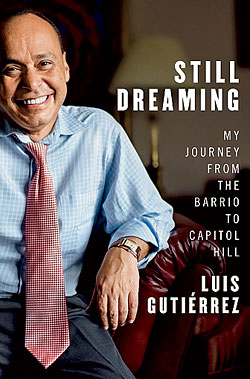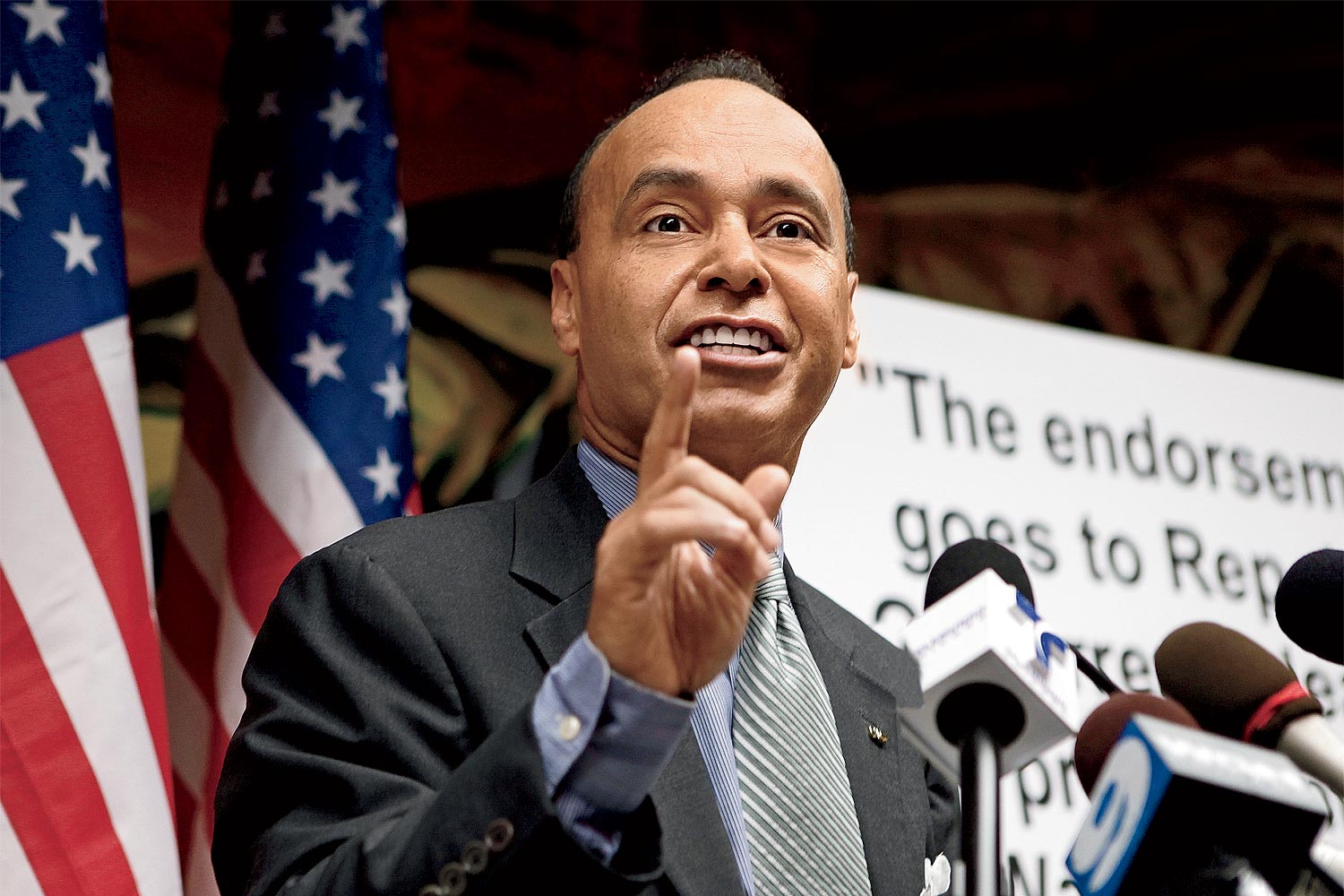You released your memoir, Still Dreaming, in October. Why now?
I thought it was a good moment—just the right time. Immigration reform’s time had come.
How does leading the nation on immigration reform mesh with serving constituents?
[My constituents] are extremely concerned about immigration. They’re not just from Mexico; they’re from Poland and Ireland and Ukraine. [We’ve filled out] 50,000 applications for U.S. citizenship, thousands of applications for family unification, thousands for deferred action [on deportation].
With so many issues in front of Congress—Syria, the debt ceiling—will immigration come up this fall?
I think so. I’m very optimistic.
Why, when Congress is still arguing over the president’s health care plan?
On [the Affordable Care Act] there is no bridge between Republicans and Democrats. Same with the debt ceiling. Immigration reform is the only issue that generates bipartisanship. I just met with [House Judiciary Committee Chairman] Bob Goodlatte, a Republican from Virginia. The most important comment he made to me was, “Immigration is not dead. It’s alive. I want to get it done.”
That doesn’t mean we have the same definition of immigration reform, but it does mean that we have the same hopes for passage. [Gutiérrez advocates for a pathway to citizenship for immigrants who are here illegally as well as ceasing the deportation of those with American children.]
You write in the book that the White House asked you to “stand firm” against an immigration bill from Republican senator Marco Rubio.
The White House sent its top policy adviser, Cecilia Muñoz, to meet with the Congressional Hispanic Caucus and ask us not to support the Rubio proposal. She argued that the problem is it didn’t have a pathway to citizenship [for those living in the country illegally]. Our response was: [We’re] going to support Rubio because his proposal stops deportation [of those immigrants]. The president won’t use his executive authority to stop it. I’ll support Rubio until [the president] stops the deportations.
You’ve been pestering the president to pursue immigration reform for years, including protesting outside the White House in 2011. Did Rahm Emanuel ever call you telling you to lay off?
The only time I remember really interacting with Rahm was when we met with the president [in the White House’s State Dining Room in June 2009]. As we left the meeting, I said, “Mr. President, who do I follow up with?” He turned around and said, “Rahm Emanuel.” If you tell me the chief of staff is in charge, I know nobody is in charge.
So you never had any Rahm encounters in, say, the gym showers, as other congressmen did?
No. I once did him a favor. He knew that I kept extra shirts down in the House gym. When he went to get sworn in the first time [for Congress], he messed up his shirt. He said, “Hey, Luis, I know you got shirts here, bro.” In his picture when he got sworn in, he was wearing my shirt.
On the Death of Harold Washington
In 1987, when Gutiérrez was a Chicago alderman, Mayor Washington was a beloved mentor. Here’s what happened on November 25 of that year, according to an excerpt from Gutiérrez’s new memoir.

It was right before Thanksgiving, and I was taking some time away from City Hall. Nothing much was happening. The city was quiet. [My wife] Soraida and I were at home together, cleaning the house and getting ready for the holidays. We were hosting our family for Thanksgiving. We were making plans when the phone rang. I answered it.
“Luis, it’s Alderman Dick Mell. Now, don’t get angry, and don’t get excited. We have an important decision to make. Listen—he’s dead. One of my guys was the paramedic. On TV they are going to say he still has a chance, but I’m telling you, he’s dead.”
I didn’t know what he was talking about.
“Who’s dead?”
“Your mayor. He’s dead. Now, we have to decide some things, and I’d like your help. I want to be mayor of the city of Chicago. I’m going to get the votes. I’d like you to keep your options open. Don’t make any hasty decisions.”
[When I went to my office at City Hall, I realized that] I had chosen the wrong place to go find fellow mourners. Many of my colleagues were following Dick Mell’s lead, talking and plotting. The City Council would choose the next mayor, and the campaign was already underway.
Excerpted from Still Dreaming: My Journey from the Barrio to Capitol Hill by Luis GutiÉrrez with Doug Scofield. Copyright © 2013 by Luis GutiÉrrez and Doug Scofield. With permission of the publisher, W. W. Norton & Company.



